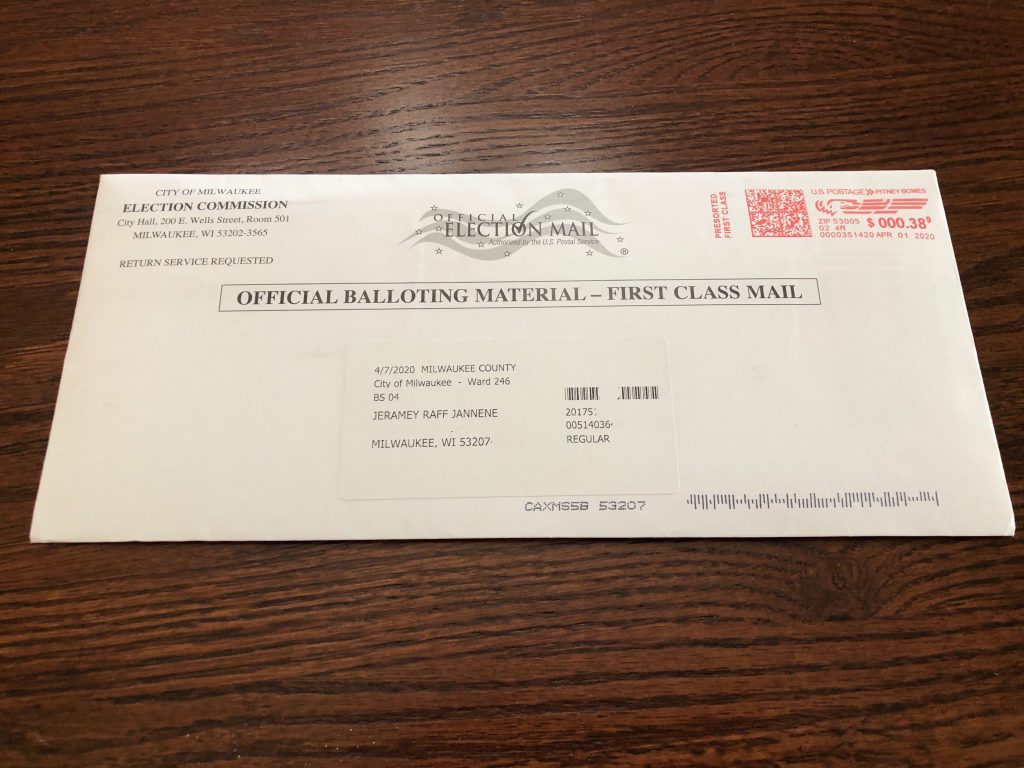Senate Passes a Dozen Voting Bills
Republicans say bills address election ‘irregularities.’ Democrats charge ‘voter suppression.'
Once again on Tuesday, Republicans and Democrats in the Legislature locked horns on voting.
In the Senate, Republicans passed a proposed amendment to the state Constitution that would bar outside donors from helping local governments defray the cost of managing an election.
The GOP legislation included some pieces that the principal author, Sen. Kathy Bernier (R-Chippewa Falls), insisted were simply the fruit of a nonpartisan review of the 2020 election in Wisconsin.
“Those of you who know me know that’s about the last thing I am interested in doing, is suppressing the vote,” said Bernier. “These bills before you today are all based on the Legislative Audit Bureau findings.”
Bernier, a former local election clerk, has also been outspokenly critical of the partisan election review commissioned by Assembly Speaker Robin Vos (R-Rochester) and carried out by former Supreme Court Justice Michael Gableman.
Democrats were not persuaded. “The majority party has spent an entire session regurgitating election conspiracy theories, introducing these voter suppression bills that we’re seeing today,” said Sen. Jeff Smith (D-Brunswick). “And now flip flopping on the fact that President Biden won the 2020 election.”
(Spindell, in addition to being an elections commission member, was also one of 10 Republicans who called themselves Wisconsin presidential electors and signed a certificate falsely declaring Donald Trump the winner of the state’s presidential electoral votes.)
Republicans struck back. “We’re not talking about 2020,” said Sen. Robert Cowles (R-Green Bay). “That’s over. Biden won. We’re talking about the future and these are common sense audit bureau recommendations.”
The Democrats’ resistance to the bills extended to one that had prompted speculation of possible compromise.
SB-937, one of Bernier’s proposals, would rewrite the state’s law on so-called indefinitely confined voters, who currently can apply to receive an absentee ballot automatically every election.
The Wisconsin Elections Commission has reported that the number of people who declared themselves to be “indefinitely confined” in the November 2020 election was four times the number that had sought the status in November 2016, and the bill specifies that pandemic conditions alone would not be sufficient grounds for a voter to claim that status.
A coalition of disability rights organizations had raised concerns about the bill, but stopped short of flatly opposing it when it was introduced earlier this month. Amendments that Bernier offered led the groups to declare their support for the bill this week. The amendments include one with a more flexible voter identification requirement and one that removes age as a criterion to be eligible to be indefinitely confined.
“Ultimately, we support this bill because it is critically important to maintain this vital protection for indefinitely confined voters,” the coalition said in a statement released Sunday.
But that support was not enough to sway Democrats, who all voted against the amended bill.
“Is this bill and all its proposed amendments better than current law?” asked Smith. “No, it isn’t. Does it restrict access to the polls for Wisconsin voters, some of Wisconsin’s voters? Yes, it does. And will this bill create new challenges for some in Wisconsin to vote, to cast their ballots? Of course it does.”
Smith said that advocates for passing the compromise had asked for his support “because the thought is that Republicans will do worse next session. Y’all keep that in mind — the concern is that you will do worse next session to the disability community!”
Sen. Janet Bewley (D-Mason), the leader of the Senate Democrats, struck a conciliatory tone even as she argued against the same bill.
Republicans and Democrats have “kind of a heart-and-mind argument” when it comes to voting, said Bewley. She told a story about the difficulty her mother once had signing an absentee ballot envelope after voting and instead gave up.
Bernier said the bill was needed to provide the Wisconsin Election Commission as well as local election officials with guidance on how to manage requests by voters seeking the “indefinitely confined” status.
“We don’t want to prevent people from voting, but we want people who are indefinitely confined who really [have] applied for that reason, and not somebody else randomly or on purpose, claimed to be indefinitely confined,” Bernier said. “I don’t park in a disabled parking spot. I never have, not even for a quick run in or run out at Kwik Trip. I won’t do it because that is meant for those who would have disabilities.”
Sen. Chris Larson (D-Milwaukee) observed that while there is a limited number of parking spaces for people with disabilities, “as best as I can tell, there are not a finite number of [absentee] ballots that we are distributing for our neighbors to vote.”
Larson equated the spirit behind the bill with saying people who registered as “indefinitely confined” during the pandemic “were trying to trick us.” He noted in passing that former Lt. Gov. Rebecca Kleefisch, now a Republican hopeful for governor, had declared herself “indefinitely confined” when voting earlier in the pandemic.
“We have entire states in this country that vote by mail,” Larson said, without election clerks requiring voters to “prove that you have to vote by mail.”
At 18-15, that bill had the narrowest margin of any of the election and voting bills before the Senate Tuesday. All passed with no Democratic votes.
Unlike most of the others, however, on SB-937 the Democrats were joined in the ‘no’ column by three Republicans, who have all signed on to other voting related bills that have been even more harshly criticized by voting-rights advocates: Sens. Steve Nass (R-Whitewater), Duey Stroebel (R-Saukville) and Julian Bradley (R-Franklin).
Senate GOP election proposals pass without support from Democrats was originally published by the Wisconsin Examiner.






















